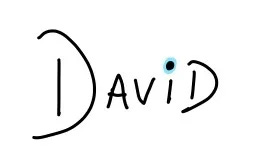I’ve been thinking about what it really means to pursue longevity, while also meeting the relentless demands of work, ambition, and daily life.
There’s a memory that replays in my mind from time to time, set during an intense period of my career. We were deep in the throes of a major project—tight timelines, high stakes, and the kind of pressure that only seems to build when the C-suite gets involved. In one particular meeting, our CEO was reviewing our work. The tension was thick. Voices were calm but clipped.
The stakes were clear.
After the meeting wrapped and the CEO exited the room, there was a collective exhale. One of my colleagues reached for a doughnut from a nearby tray and cracked a joke about stress eating. I laughed, grabbed one too, and we stood there—momentarily bonded in shared tension, sugar, and exhaustion—before diving right back into the grind.
It’s a small moment, but for some reason, it’s stayed with me. A kind of mental snapshot. Maybe because it represents a chapter in my life when I prioritized professional success above just about everything else. That chapter was filled with back-to-back meetings, red-eye flights, client dinners, conference keynotes, late nights, early mornings. I don’t regret it—I thrived in many ways. But looking back, it’s clear that I let my health ride shotgun for too long.
That doughnut? It wasn’t just about sugar. It was about coping. Stress eating (or drinking) became a ritual. Not constant, but common enough to leave a mark.
The picture on the left? That’s who I was during that phase of life. Driven, capable, overextended, and on autopilot when it came to health. The picture on the right is who I am now—after making some big lifestyle changes. It wasn’t a magical transformation. Just small, consistent steps: improving what I ate, moving more regularly, sleeping better, and being more intentional about how I handle stress.
I still work hard. I still care deeply about what I do. Life hasn’t become less complicated—but I’ve started to respond to it differently. I’m still ambitious, still chasing meaningful work—but now I think just as much about the long game.
Longevity has become a guiding theme.
Part of that comes from watching my father prepare to celebrate his 90th birthday. He’s lived a long, full life—and continues to do so. That milestone has been a powerful reminder that longevity doesn’t happen by accident. It’s something we can influence—through lifestyle, community, mindset, and purpose.
There’s a great documentary called The Blue Zones, which explores communities around the world where people consistently live past 100. The filmmaker traveled to remote villages in Okinawa, Sardinia, Costa Rica, and other regions where centenarians are more common than not. The details vary, but the patterns are strikingly consistent:
Minimal processed foods—local, fresh ingredients dominate their diets
Daily physical movement—not gym workouts, but walking, gardening, chores
Close community and family ties—social connection as a buffer for stress
Spiritual grounding—faith, rituals, or simply moments of reflection
A strong sense of purpose—what the Japanese call ikigai, a reason to wake up each morning
These insights feel simple. But simple doesn’t mean easy—especially in the context of modern professional life.
In many ways, the corporate world is engineered to keep us productive, not necessarily well. Long hours are normalized. Achievement is rewarded. Burnout is quietly tolerated. And all too often, self-care gets reframed as indulgence rather than necessity.
My former colleague from that meeting—the one I shared the doughnut and the joke with—was one of the most hardworking, talented, and beloved people I’ve known. He gave everything to his work and his team. I think I revisit that memory so often because… he’s no longer here.
We don’t talk enough about how many brilliant, dedicated people we lose too early—sometimes to health issues, often accelerated by a lifestyle that doesn’t leave space for healing, rest, or reflection.
If I could share anything with my younger self—or anyone caught in that loop right now—it would be this: You don’t have to trade health for success. You can design a version of success that includes wellbeing. But it has to be intentional. Because the default path won’t lead there.
I was recently talking to a friend who has also undergone a similar lifestyle transformation and is someone who has built and sold multiple successful businesses. We had a honest conversation around our work lives past and present and he positioned things in a way I hadn’t quite thought of:
“Congratulations on successfully pivoting from living to work, to working to live”
I haven’t figured it all out. But I’m making better choices now. Not perfectly—just more consistently. And I plan to keep choosing...
Not just for productivity.
Not just for performance.
But for presence.
For purpose.
For longevity.
By design.
Visually yours,





